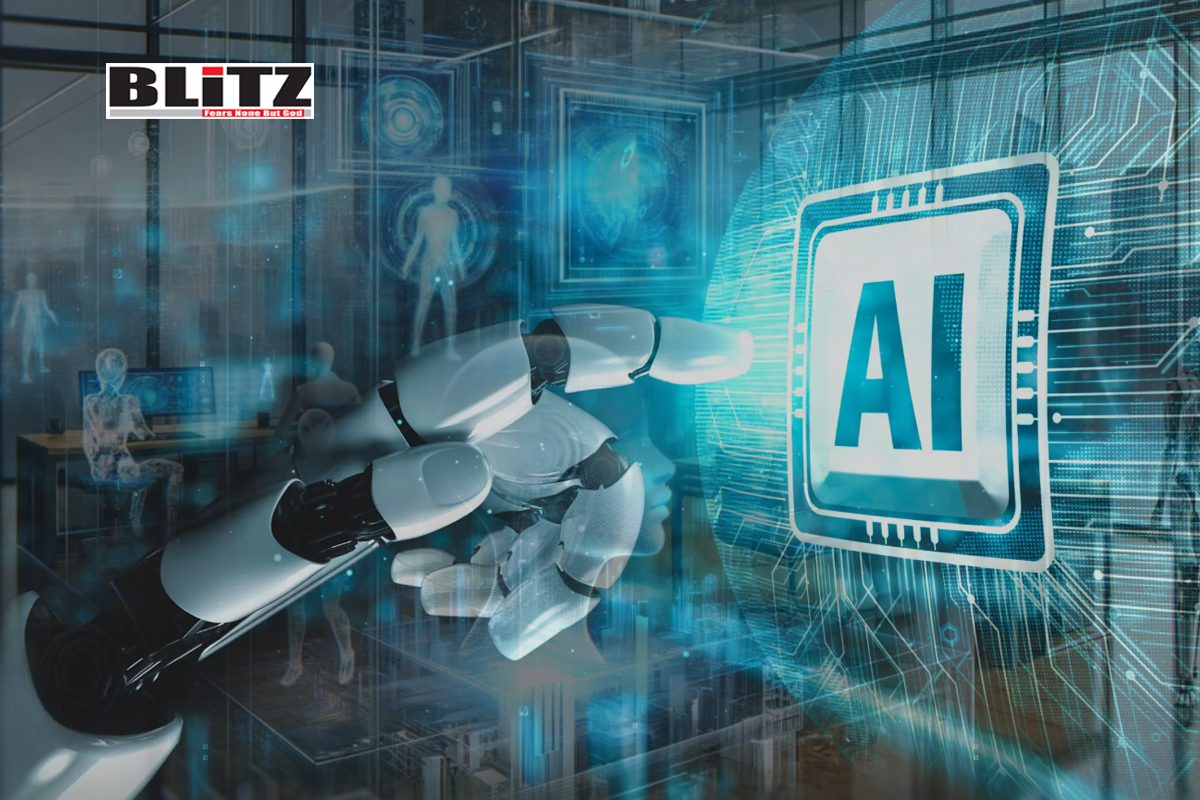President Donald Trump’s landmark visit to Saudi Arabia was more than a geopolitical photo opportunity or a transactional alliance around defense and energy. It marked an inflection point in a rapidly changing global landscape – one where artificial intelligence (AI) now occupies center stage in shaping the future of nations. As headlines focused on the symbolism of Trump’s outreach to the Islamic world, a deeper, quieter revolution was already unfolding behind the scenes – the birth of a new era where global partnerships are forged not just around shared security interests, but around shared aspirations for technological transformation.
Saudi Arabia, long recognized for its strategic energy reserves, is now positioning itself as a pioneer in the AI domain. This pivot is not accidental. It reflects a broader ambition: to future-proof the Kingdom’s economy and political structure by embedding cutting-edge technologies into the fabric of national governance and industry. Yet, amid the construction of sovereign data infrastructure, large language models (LLMs), and gleaming smart city projects like NEOM, an essential question remains insufficiently addressed: Who truly owns the AI revolution?
Too often, the narrative surrounding artificial intelligence is monopolized by technologists. In Western tech centers like Silicon Valley, AI has been portrayed as a highly specialized discipline – one governed by neural networks, GPU clusters, and machine learning frameworks. While these elements are indeed crucial, their dominance in public discourse has created a dangerously narrow perception. AI is not simply a technological breakthrough; it is a societal transformation – and one that must include everyone.
When the American Institute of Artificial Intelligence and Quantum (AIAIQ) was established in 2016, it recognized the urgent need to recalibrate this discourse. At the time, AI was still largely confined to research labs, elite academic institutions, and specialized conferences. Policymakers, educators, and business leaders – those tasked with navigating AI’s real-world implications – found themselves alienated by the technical jargon and complexity.
Today, that same pattern is repeating across the Gulf. Governments are rapidly building AI infrastructure. Consultants sell prepackaged “solutions” without fully understanding local contexts. Sovereign AI is pursued as a symbol of national pride. And yet, the public remains largely on the sidelines, watching this transformation unfold without a clear sense of how they fit into it.
The danger here is profound. If AI remains the exclusive domain of data scientists and programmers, it will never become a true revolution. It will instead become an elite tool, used to reinforce existing power structures rather than democratize opportunity. Just as the internet only became a global force once it was embraced and adapted by ordinary people – through blogs, forums, and eventually social media – AI must be made accessible and relevant to the general population.
Crucially, this does not mean every citizen must become a machine learning expert. It means that citizens must be empowered to understand AI’s implications – for their jobs, their privacy, their rights, and their future. We need AI literacy, not AI mysticism. A society cannot be led into the future by a technical priesthood alone.
This is why the AIAIQ took a radically different approach from most AI institutions. Rather than focus on producing a new generation of AI PhDs, it concentrated on developing what it calls “AI adoption engineering” – the capacity to help professionals across sectors understand, integrate, and responsibly use AI technologies. Whether in healthcare, logistics, governance, or finance, the mission is the same: to ensure that those shaping the future of industries can do so with a grounded understanding of AI’s capabilities and risks.
As AI becomes more embedded in the systems that govern human life – from predictive policing algorithms to algorithmic trading and automated medical diagnostics – it becomes ever more essential that these technologies be humanized. AI is not just a set of instructions; it is a collaborator, a decision-maker, and sometimes a judge. If these systems are opaque, unaccountable, or misunderstood, they will breed distrust and resentment – as we are already beginning to see in certain sectors of the workforce.
Unlike previous industrial revolutions that primarily replaced manual labor, AI threatens to displace cognitive labor – the very work that has defined the middle class and educated professionals for decades. Without widespread preparation, this disruption could provoke widespread social backlash. Fear of job loss, data misuse, surveillance, and bias is already palpable in many countries. If ignored, these fears could derail AI’s progress entirely.
To prevent this, nations must do more than build data centers and sponsor hackathons. They must cultivate cognitive readiness. This means equipping not just engineers, but civil servants, teachers, students, and executives with the tools to understand and shape AI. It also means framing AI not as a product to be deployed, but as a paradigm to be interpreted and governed.
Saudi Arabia, in particular, has a unique opportunity. As it embarks on its ambitious Vision 2030 reforms, it must ensure that technological transformation is accompanied by societal inclusion. Building sovereign LLMs is commendable. But real sovereignty comes from the ability of a nation’s people – not just its hardware – to engage with technology intelligently and ethically.
AI nationalism, if left unchecked, could lead to hollow victories. What good is a state-of-the-art model if it is deployed in a system where leaders and users lack the understanding to use it meaningfully or responsibly? Sovereignty, in the AI context, is not just about independence from foreign cloud providers. It’s about the internal strength to manage, govern, and innovate upon digital infrastructure with purpose and integrity.
This new paradigm of “co-developing cognition” – as the original essay aptly described – offers a hopeful vision for the future. For the first time, global alliances are not solely about protecting borders or accessing markets. They are about sharing knowledge, ethics, and strategy in managing the most transformative technology of our age.
The collaboration between the United States and Saudi Arabia in this domain reflects a broader realignment. Oil once defined partnerships. Now, intelligence – both artificial and human – does. And unlike oil, intelligence grows when shared. This is why the AI revolution must be participatory. It must be democratized. Otherwise, it will deepen global inequalities and provoke political resistance that undermines its potential.
The classroom, the boardroom, the war room, and the living room must all be part of this journey. Whether it’s helping a schoolteacher understand how AI can personalize education, or enabling a minister to question the ethics of an algorithm deployed in public policy, the goal is the same: empower people.
Because at its core, AI is not a technological question. It is a human one. It forces us to confront who we are, what we value, and how we want to live. If we do not see ourselves in it – not just as users, but as co-authors – we will reject it. And the revolution will stall.
Artificial intelligence will reshape the world. But only if the world is ready to shape it back.
Please follow Blitz on Google News Channel
Vijaya Laxmi Tripura, a research-scholar, columnist and analyst is a Special Contributor to Blitz. She lives in Cape Town, South Africa.
the-ai-revolution-will-only-succeed-when-people-truly-own-it















Leave a Reply